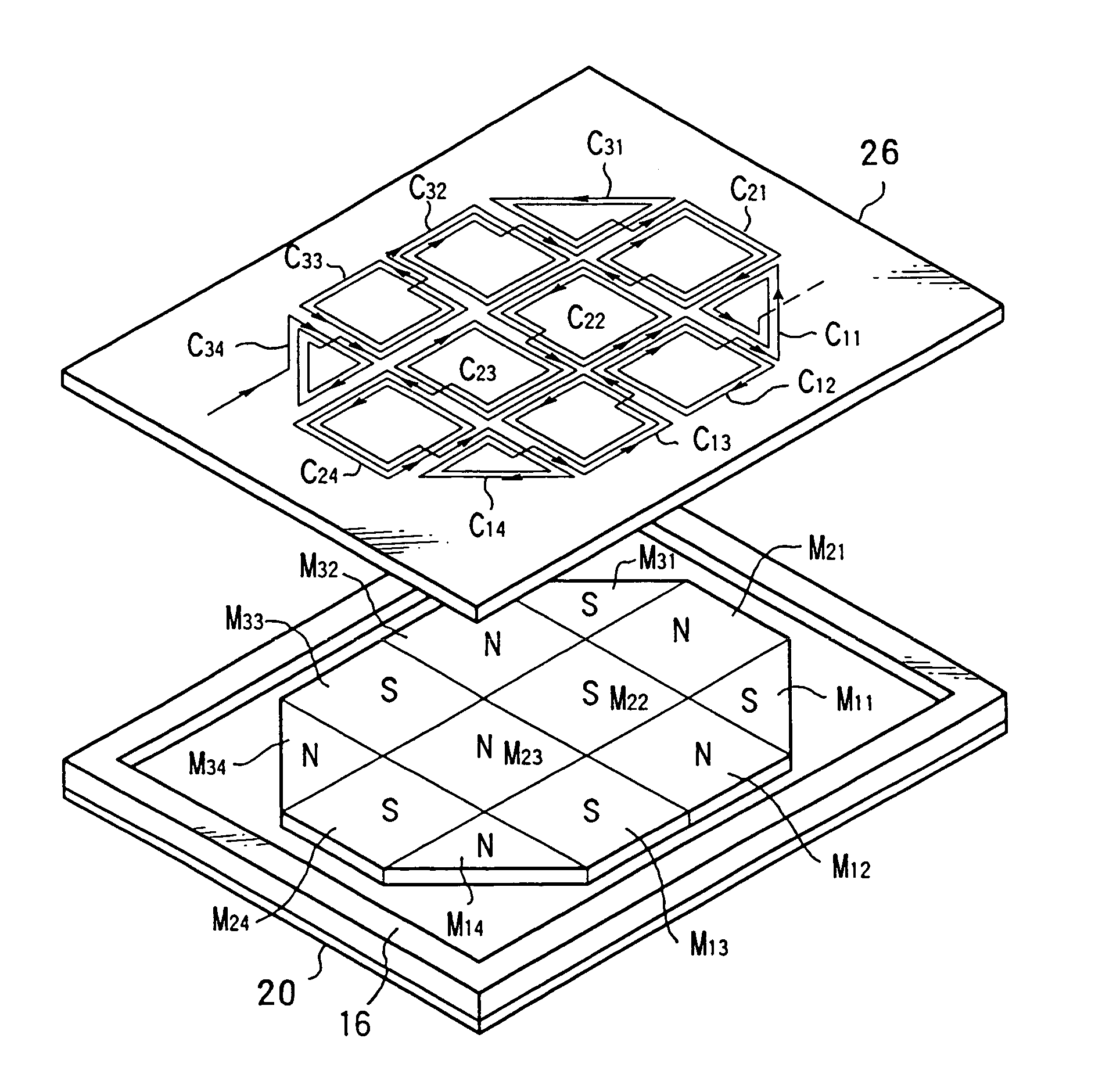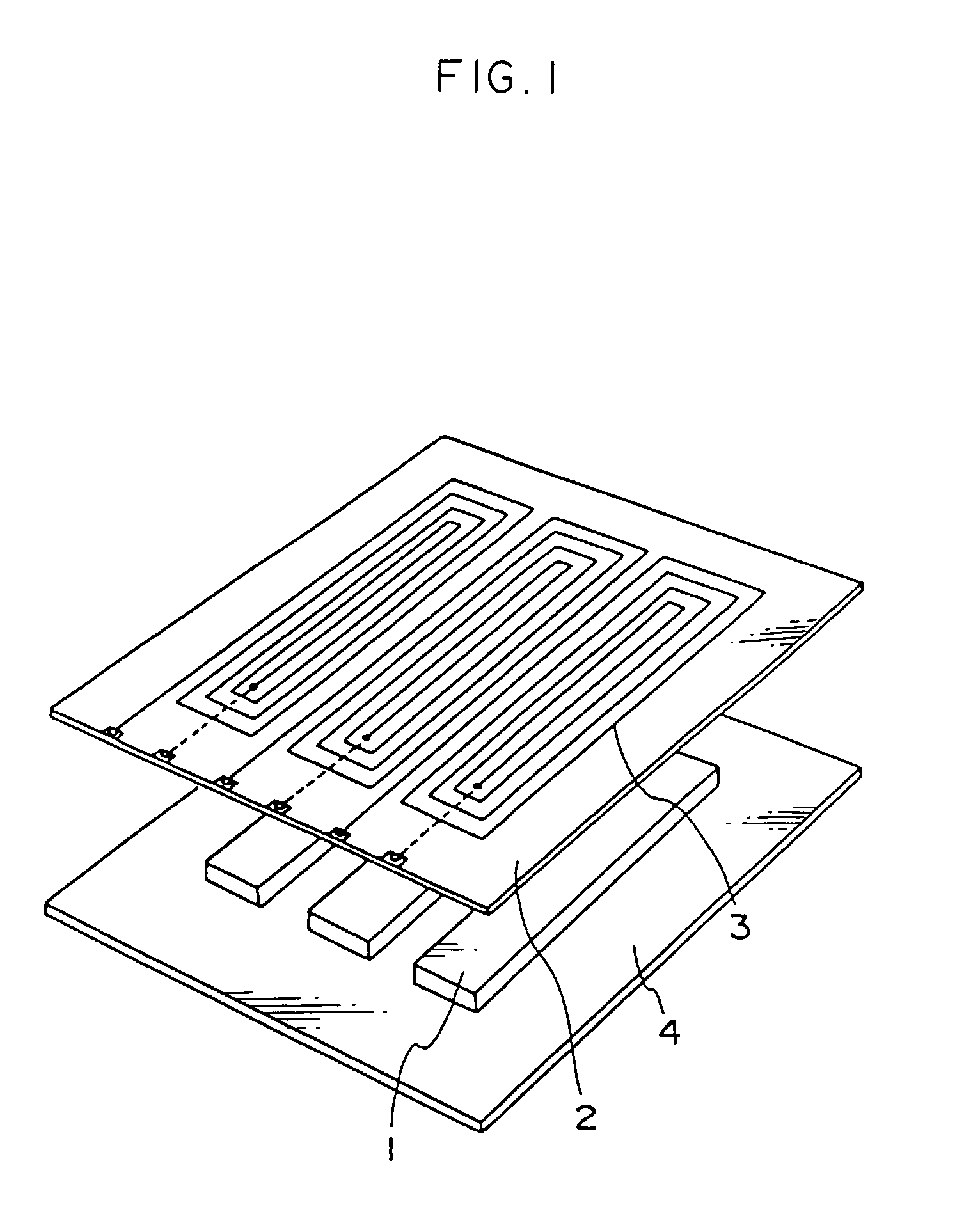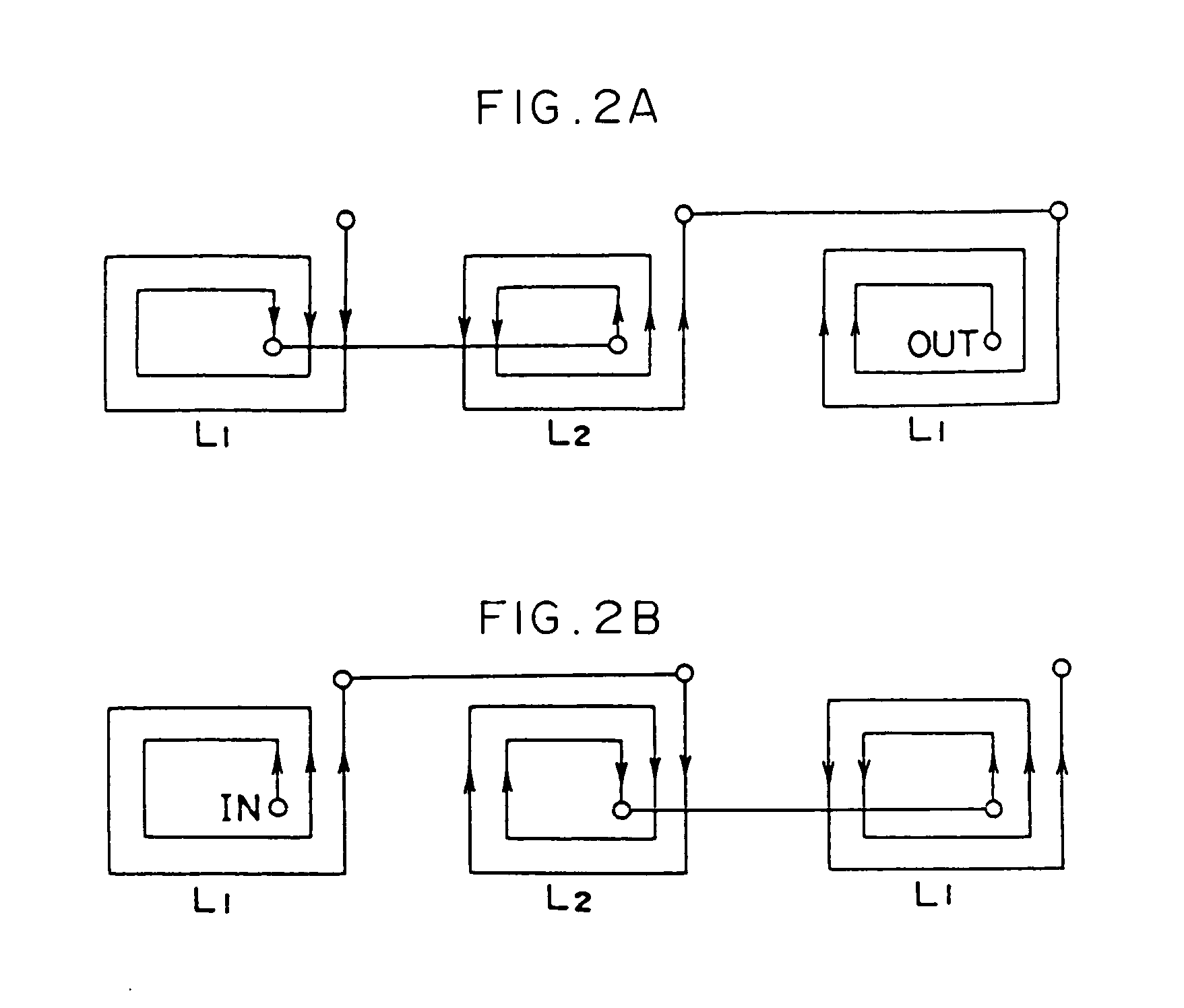Flat acoustic conversion device
- Summary
- Abstract
- Description
- Claims
- Application Information
AI Technical Summary
Benefits of technology
Problems solved by technology
Method used
Image
Examples
first embodiment
[0147]As is shown in FIG. 9, the flat speaker unit of the first embodiment is provided with a yoke 20 comprising a rectangular plate-shaped member formed from a magnetic body. A flat, triangular permanent magnet M11 is disposed at one corner portion of the top surface of the yoke 20 with the S polarity magnetic pole face thereof facing upwards and with the oblique line of the triangle facing towards the corner of the yoke 20. The permanent magnet M11 is fixed in place using an adhesive. A ferrite based magnet or neodymium based magnet can be used for the permanent magnet.
[0148]A flat, quadrangular permanent magnet M12 is disposed at a position adjacent to the permanent magnet M11 along the longitudinal side of the yoke 20 with the N polarity magnetic pole face thereof facing upwards and with the surface of one side thereof in contact with the surface of one side of the permanent magnet M11.
[0149]A flat, quadrangular permanent magnet M13 is disposed at a position adjacent to the perm...
second embodiment
[0164]The second embodiment of the present invention will now be described with reference made to FIG. 11. The acoustic conversion device according to the second embodiment is formed from a magnetic material and is provided with a yoke 20 comprising a rectangular plate-shaped member in the outer peripheral portions of which are punched a plurality of holes 20A. Magnet fixing portions to which are fixed permanent magnets are formed in the area of the yoke 20 surrounded by the holes 20A.
[0165]Flat, quadrangular permanent magnets m11 to m38 are fixed to the magnet fixing portions with an adhesive with the side surfaces of each magnet in contact with the adjacent permanent magnets with no gaps between each magnet such that the upward facing magnetic pole faces of adjacent permanent magnets have alternating polarities. Namely, permanent magnets mij (wherein when i=1 or 3, then j=1, 3, 5, or 7 and when i=2, then j=2, 4, 6, or 8) are fixed in place such that S polarity magnetic pole faces ...
third embodiment
[0188]The third embodiment of the present invention will now be described with reference made to FIGS. 17 and 18. As is shown in FIGS. 17 and 18, the acoustic conversion device according to the third embodiment is formed from a magnetic material and is provided with a yoke 20 comprising a rectangular plate-shaped member in the outer peripheral portions of which are punched a plurality of holes 20A. Magnet fixing portions to which are fixed permanent magnets are formed in the area of the yoke 20 surrounded by the holes 20A. Small boss insertion holes 20B for inserting bosses formed in a case are punched in the four corners of the yoke 20.
[0189]One of a plurality of flat, quadrangular permanent magnets m is fixed to each of the magnet fixing portions with an adhesive with the magnet side surfaces in contact with the adjacent permanent magnets with no gaps between each magnet such that the upward facing magnetic pole faces of adjacent permanent magnets have alternating polarities. Name...
PUM
 Login to View More
Login to View More Abstract
Description
Claims
Application Information
 Login to View More
Login to View More - R&D
- Intellectual Property
- Life Sciences
- Materials
- Tech Scout
- Unparalleled Data Quality
- Higher Quality Content
- 60% Fewer Hallucinations
Browse by: Latest US Patents, China's latest patents, Technical Efficacy Thesaurus, Application Domain, Technology Topic, Popular Technical Reports.
© 2025 PatSnap. All rights reserved.Legal|Privacy policy|Modern Slavery Act Transparency Statement|Sitemap|About US| Contact US: help@patsnap.com



